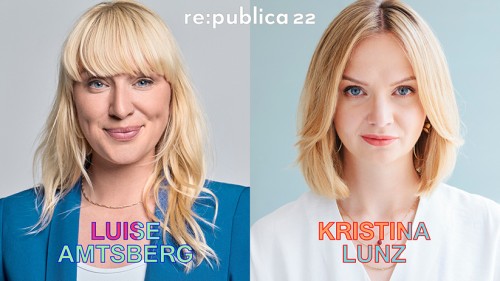Old, white, Western men still dominate politics and the theory and practice of international relations. As a result, the needs of women and minorities are permanently ignored. The world is full of wars, crises and injustice.
Kristina Lunz, with her “Centre for Feminist Foreign Policy”, sets out to change that. The political scientist, award-winning human rights activist and entrepreneur thinks peace, human rights and justice together with foreign policy and wants to initiate a paradigm shift. On this subject, she also published her book "Die Zukunft der Außenpolitik ist feministisch" (The Future of Foreign Policy is Feminist) back in February.
Luise Amtsberg has been a member of the Bundestag since 2013 as spokesperson for Refugee Policy with Bündnis 90/Die Grünen and has been the Federal Government Commissioner for Human Rights Policy and Humanitarian Aid since January this year. She wants to take sides for human rights and, where necessary, exert a constructive critical influence on the federal government’s human rights policy. The guiding principle of her political action will be feminist foreign policy.
In a conversation at re:publica 22, the two will discuss what feminist foreign policy means, why it is so important for society and, in the process, give an overview of the state of play in Germany’s political efforts to pursue a feminist foreign policy.
